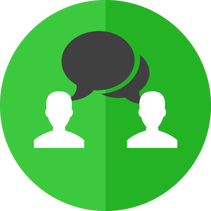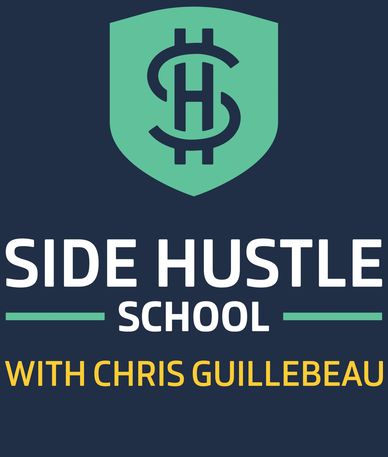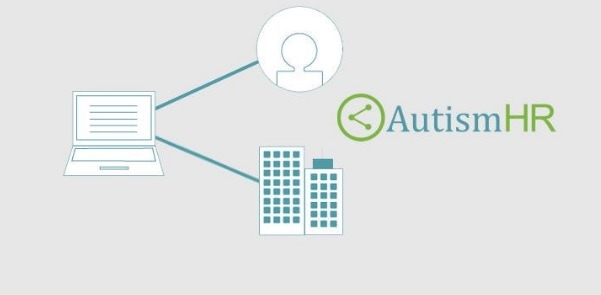|
In recent months AutismHR has fielded several questions, politely asking why the site uses Identity-first language, so I thought I would address it here.
Within the autism community there is healthy debate over the use of person-first vs. identity-first language when addressing individuals on the spectrum. Here's an example of each form: Person-first language: "AutismHR.com is designed for adults with autism." Identity-first language: "AutismHR.com is designed for autistic adults." For those not immersed in the autism community the difference may seem subtle, but there are distinct differences. I can appreciate and respect people's preference for person-first language. That is a view that many hold. The idea is that it identifies the person as being separate from their difference. The individual is identified as a person first, and only second by the medical diagnosis they bear. Identity-first language still recognizes the individual, but accepts the idea that the individual's difference makes up a part of who they are. Such individuals cannot separate themselves from their difference. It's a holistic way to identify someone. My overall opinion is that person-first and identity-first language is both correct and incorrect. However, the target audience for whom such language is intended requires the author/content producer to make a choice about which language to consistently use. AutismHR has simply chosen to primarily use identity-first language to reflect the preference of the many in the autism community for whom AutismHR is primarily geared -- self-advocating individuals on the spectrum. The National Center on Disability and Journalism has a good post that points out the differences in more detail. I encourage anyone curious about this issue to read it. Posted by: Nick Venturella If you haven't heard of Side Hustle School from Chris Guillebeau (author of The $100 Start Up - highly recommended book) then it's probably time you did.
The Side Hustle School website offers a lot of information and resources for anyone interested in starting a side business, whether that's gig economy freelancing or something else. The site offers several free podcasts highlighting the stories of ordinary people building extraordinary small, medium and large side businesses. Some build a side business to supplement a current income, others do it out of necessity and still others do it to have an outlet for other creative endeavors. AutismHR wants to help you on you're path to earn meaningful income from your current skills, thus, Side Hustle School is a website that simply offers additional information and resources along your journey. Posted by: Nick Venturella Many who know me, know that I have a young son on the autism spectrum.
Because of this, I am constantly motivated to read and research and talk to others in and around the autism community (I'm most interested in speaking with actually autistic adults). Doing so helps continue my education on autism and being inclusive. In particular, a concerning gap exists for autistic individuals who age out of services and are interested in, and need to enter the workforce to help support themselves, but are unable to get connected to meaningful employment opportunities for a variety of reasons. I'm likely not the first person to have this thought, but my idea is to provide a small, simple alternative and/or springboard to traditional employment for autistic adults. The Beginnings of AutismHR.com Back in June 2015, around the time of my second son being born, I bought the domain name, AutismHR.com. The AutismHR.com project began out of my own curiosity. It originally was a place online for me to curate articles from all over the internet about autism employment and autism entrepreneurship. Because the site was public, others could benefit from its content as well. I became more and more interested in what employment options exist for autistic adults who age out of services, knowing one day my own son would be of an age where he will have to support himself somehow. The First AutismHR Evolution I thought perhaps I could build an online database of progressive employers with inclusive hiring practices/employment programs for autistic adults then connect autistic job-seekers with the employers in my database. (On my site there is still a self-service model of this available for inclusive employers to add themselves to the database and for anyone else to look through and reach out to those employers). More Iterations Quickly, I realized I needed to iterate. In large part, because I work full-time, I couldn't personally support a model for AutismHR.com that involved so much of my time and energy. I just wasn't that successful at finding and connecting autistic job-seekers with inclusive employers. Plus, I started to find other resources that were doing similar things better, and on a larger scale, than I ever could on my own. So I decided to iterate AutismHR again. Because I'm a creative/marketing professional (in my full-time career), I freelance services on the side to earn extra money and keep my skills up. I had been using a well-known gig economy platform geared towards buyers and sellers of creative services. The gig economy was personally providing me very meaningful (a.k.a. fulfilling) work because I was offering my skills in the way I wanted to potential buyers who were looking for exactly what I was offering. That means I got to work on the kinds of gigs I really liked and I was earning income from doing so. At some point, as I read more and more statistics about unemployment and underemployment among autistic adults I was concerned that there weren't enough autism employment programs available for the amount of job-seekers who want and need to make a meaningful income from their skills and interests. (I'm talking about the programs set up by big organizations like Microsoft and SAP -- great programs, but we need more of them.) I thought that at least some autistic adults could potentially benefit from the gig economy to earn some income from their skills and interests. This could be an alternative to, and/or a springboard to traditional employment. The gig economy, at the least, helps anyone who successfully uses it to get real experience providing their skills to real clients, thus, getting paid (not always a lot, but something) to gain experience and build their portfolio, which could prove beneficial if/when interested in applying for full-time employment in the future. At best, the gig economy could allow, motivated individuals an alternative to traditional employment, on their terms, from the comfort of their own homes, as needed or wanted. Where Things are at Today So this is where AutismHR.com is today: AutismHR.com's mission is to empower autistic adults to find meaningful work. More specifically, AutismHR helps provide autistic adults with an entrepreneurial path to income. That sounds nice, right? So, what does that really mean? AutismHR.com is a website that uses a tech-touch approach (a.k.a. online tutorials) to teach autistic adults how to use the gig economy to set up their own online services to take their career into their own hands and start building useful work experience toward a meaningful income. That sounds great, you say, but how much does it cost autistic adults and/or their families to get started with this? The answer: Nothing. Why doesn't it cost anything? I'm a parent of an autistic child -- there's an exorbitant cost to every autistic service. No one needs another cost for something. AutismHR.com, and the tutorials it provides are free. (Keep in mind this latest iteration of AutismHR is still fairly new, so as of today, there is only one tutorial up on the site, but more are coming). So is AutismHR.com a nonprofit organization? No. Right now, it's really just a website project, but it's moving in the direction of becoming more of a small social enterprise...that is, if the conceived model can be validated and sustained (proving the model out is where I need your help). The goal is to always make the tutorials free, and to actively promote the online businesses of our autistic entrepreneurs (for free), but find other ways to monetize the site that don't take away from the individuals who use it and benefit from it. (That could take the form of affiliate marketing, advertising, donations/patron support and/or a variety of other options I'm exploring to ensure I can cover expenses update the site with current, useful tutorials. However, I'm just one guy creating these tutorials). Here's where I need your help... I'm beginning to promote AutismHR's first graphic design tutorial to show people step by step how to set up a gig economy graphic design service. This tutorial is really for those autistic adults with interest in, and some skills in, graphic design. Because of the specialized nature of this and future tutorials, AutismHR.com may not be a fit for everyone (sadly, I know that's the truth), but if you have suggestions of online service tutorials you'd like to see on the site I'm happy to consider them. In the meantime, check out AutismHR.com for yourself, and share it with anyone you think could benefit from it. Thank you, -Nick |
Archives
October 2017
|




 RSS Feed
RSS Feed
